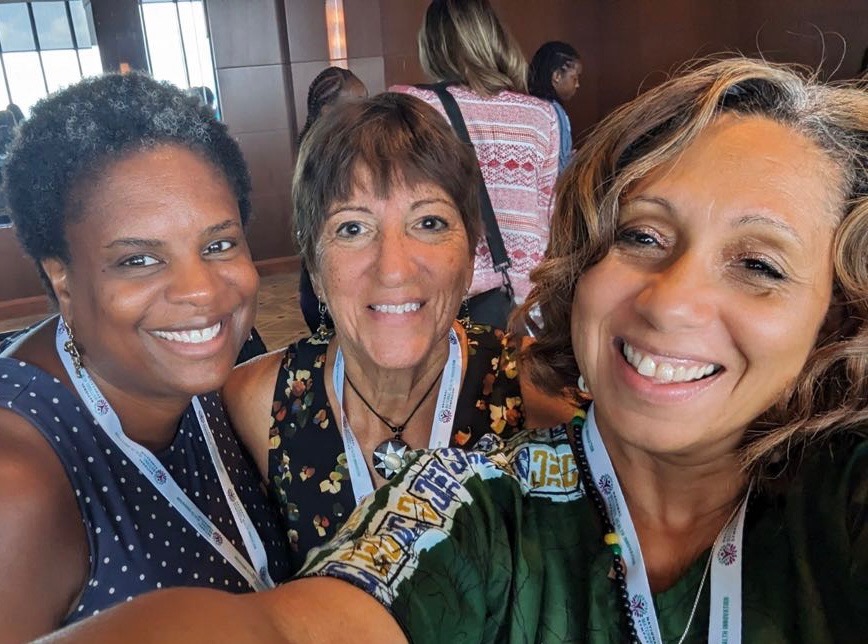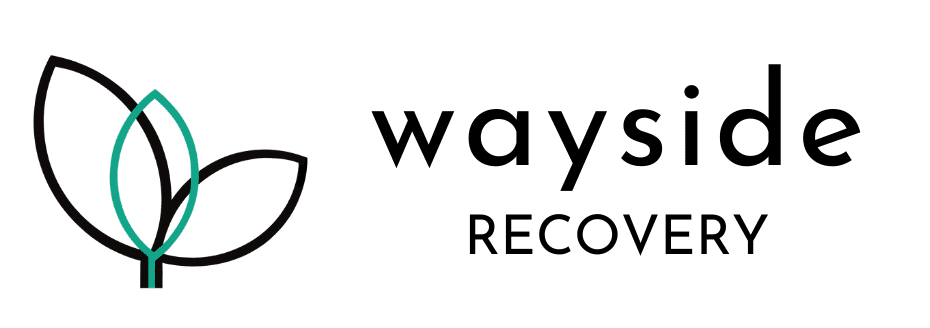Guest post by Dr. Leslie Farrington

Divine intervention has occurred many times on my birth justice journey, my second act after retiring in 2016 from a career as an OB-GYN. On this occasion, I was at BMMA’s (Black Mamas Matter Alliance) 2022 Black Maternal Health Conference and Training Institute to promote the ACTT Curriculum, an innovative advocacy toolkit for use by the Black community to improve perinatal and medical experiences and outcomes. ACTT is a self-affirming and potentially lifesaving reminder to:
- Ask questions until you understand the answers.
- Claim your space – both physical and mental.
- Trust your body.
- Tell your story.
It did not take long for me to witness a divine intervention at work after gravitating to the hallway seating area where Nicole Fernandez, Maternal and Child Health Community Liaison and Project Manager at Wayside Recovery Center, was in conversation with a colleague. I was so enthusiastically welcomed to sit and encouraged to share my work that I still remember the positive vibrations even now a year and a half later. Little did I know how I would be supported on my journey, and my work become more effective, by connecting with Nicole, and through her a powerful group of birth workers, healers, and educators serving communities of color in the Twin Cities.
“Black people are disproportionately impacted,
but obstetric abuse affects large numbers of birthing people globally.“
Minneapolis and St. Paul are no different from the rest of the US – maternal and child health suffering from broken hospital systems, doctors too busy for respectful person-centered care, lack of support for young families, and government inaction. Not to mention the direct impact and pressure insurance companies pose for medical care and clinical maternal practices. This has been a worsening crisis for the last 100 years since birthing was medicalized by doctors for profit and midwives were pushed out of community perinatal and health services. The rising numbers of perinatal deaths, severe complications, and c-sections are the tip of the iceberg of harm experienced by birthing people. Disrespect for the human right to bodily autonomy and informed decision-making is pervasive in maternity services and results in traumatic experiences in pregnancy, birth, and postpartum. Black people are disproportionately impacted, but obstetric abuse affects large numbers of birthing people globally.
Black women and people of all gender expressions are coming together in the Twin Cities and across the US to improve perinatal experiences and outcomes, support birthing families, and liberate birth from overused obstetric interventions and abuse. The ACTT advocacy toolkit is the solution that the Black Coalition for Safe Motherhood, the organization I cofounded, is promoting to amplify the voices of Black birthing parents.
At the Black Maternal Health Conference, Nicole Fernandez participated enthusiastically in the ACTT Workshop led by me and co-facilitator Nubia Earth Martin, Home Birth Midwife, community educator and activist from New York, and co-contributor to the ACTT Curriculum. Nicole was an instant supporter of ACTT in Black communities nationwide. Rhonda Fellows, Sierra Leone Williams, Kaytee Crawford, Nadine Ashby, Ariel Aiyegunle, and Nicole were part of a group of trainees in the winter of 2023 who helped me test out a new method for the ACTT Curriculum, including self-paced online training along with virtual group meetings. The brilliance and wisdom of these individuals made it a joy and a learning experience for me to come on Zoom with them.
In June of 2023, the Black Coalition for Safe Motherhood relaunched our ACTT Facilitator Training as an online self-paced training with virtual mentoring and a lively Facilitator Community. It was thanks to those from Minneapolis that I was able to fine-tune the training and get accreditation from Lamaze International for continuing education hours. With a more automated system of learning the ACTT curriculum will be available to birth workers, childbirth educators, and others who serve the Black community to improve medical and perinatal experiences.
Connections deepened after the ACTT Facilitator Training. I had occasions to call on Nadine and Rhonda for advice and critique of the Training. Nicole invited me to present in one of her Maternal Infant Health learning sessions. Sierra Leone created an ACTT Workshop with a special theme of joy and self-care for an offering during Black Maternal Health Week in April 2023. Rhonda and Nicole agreed to lead an ACTT Workshop at the August 2023 National Maternal Health Innovations Symposium which was fortuitously held in Minneapolis.
As part of my visit to the Twin Cities area, I was able to spend quality time with Nicole and Rhonda during the Symposium and socialize afterward with Kaytee, Sierra, and Rhonda. While we enjoyed dinner, I listened to them talk about the obstacles they faced in supporting families as birth workers. As a promoter of a tool for community use, it is critical to connect with users of the tool and understand the needs it can satisfy or the pitfalls. I value the connections and appreciate each of my friends in the Twin Cities individually and as a force for good locally, nationally, and beyond. It’s the love and joy during those gatherings which keeps us going.
I know my story about finding strength through collaboration is just one example of many among the legions of Black women who have fought for liberation, reproductive rights, voting rights, and civil rights since the days of slavery. One only has to read a book like Vanguard: How Black Women Broke Barriers, Won the Vote, and Insisted on Equality for All by Martha S. Jones to know that it’s in our DNA to resist oppression and exploitation and build thriving families and communities with joy and love.
Black birth justice champions are collaborating to bring education to maternal health clinicians and communities, advocacy skills and holistic support to families, and social justice awareness for high-quality compassionate maternal health care, not as a privilege but as a human right for all who are bringing new life into the world! Reproductive justice is truly justice for all.
